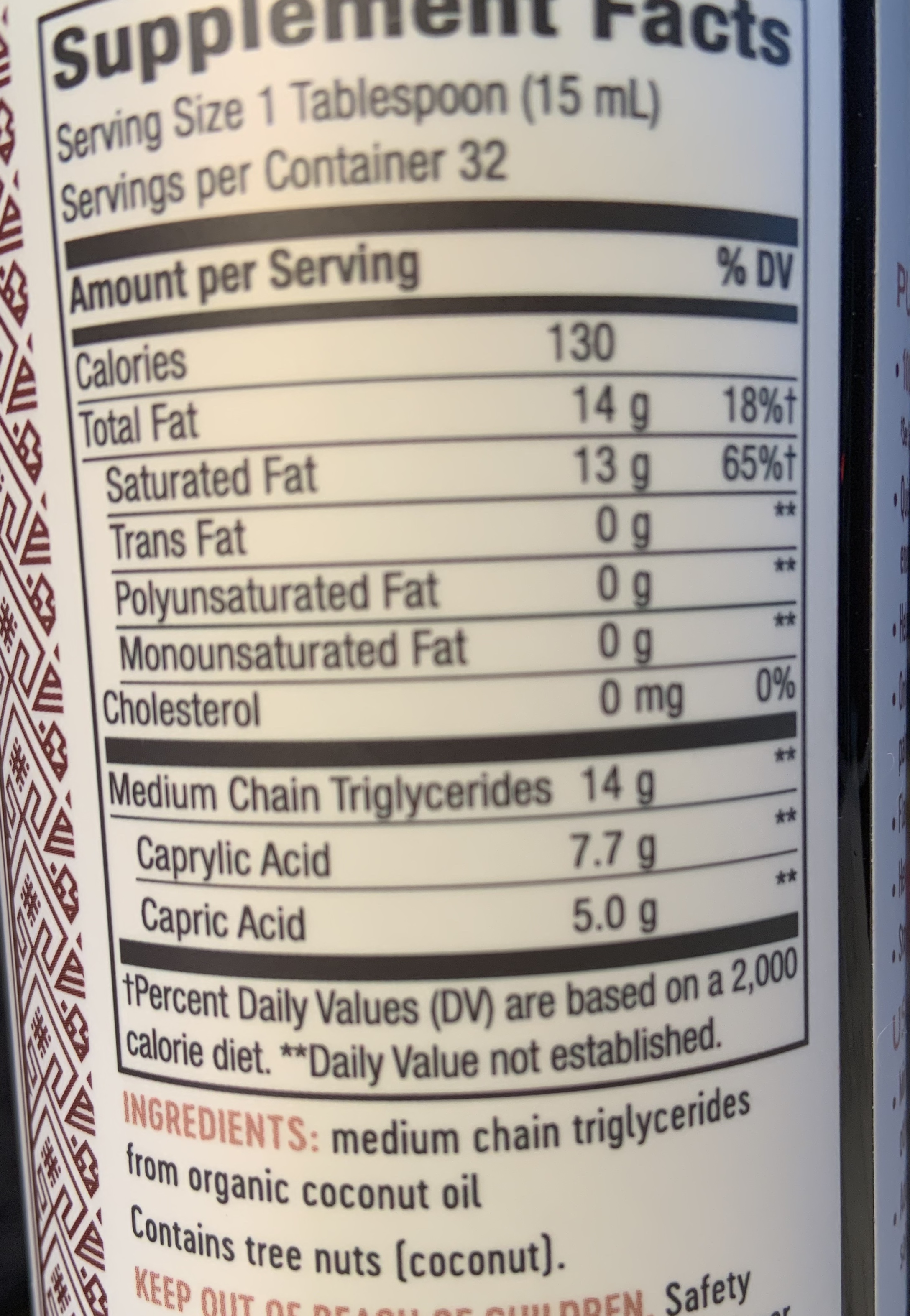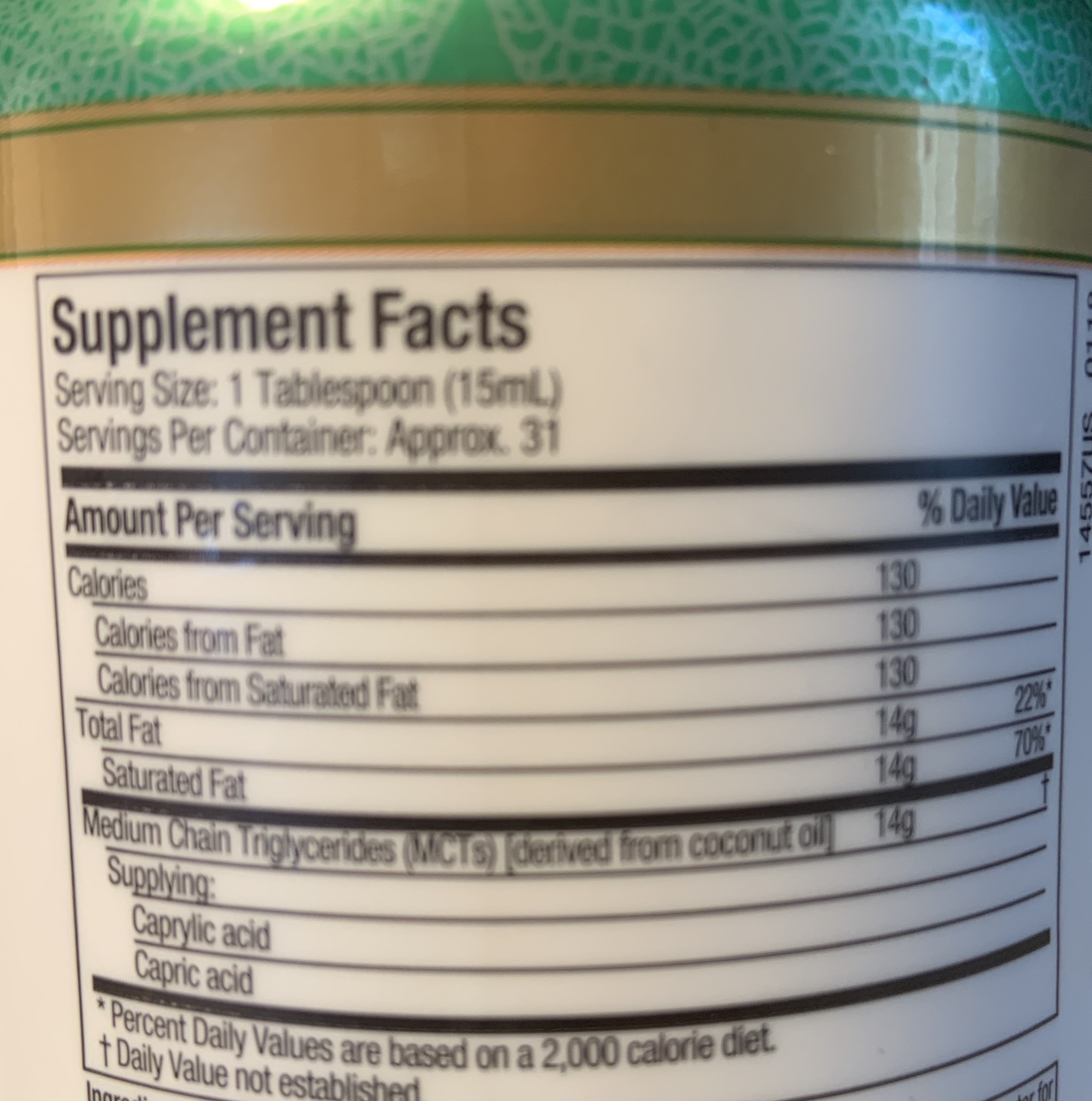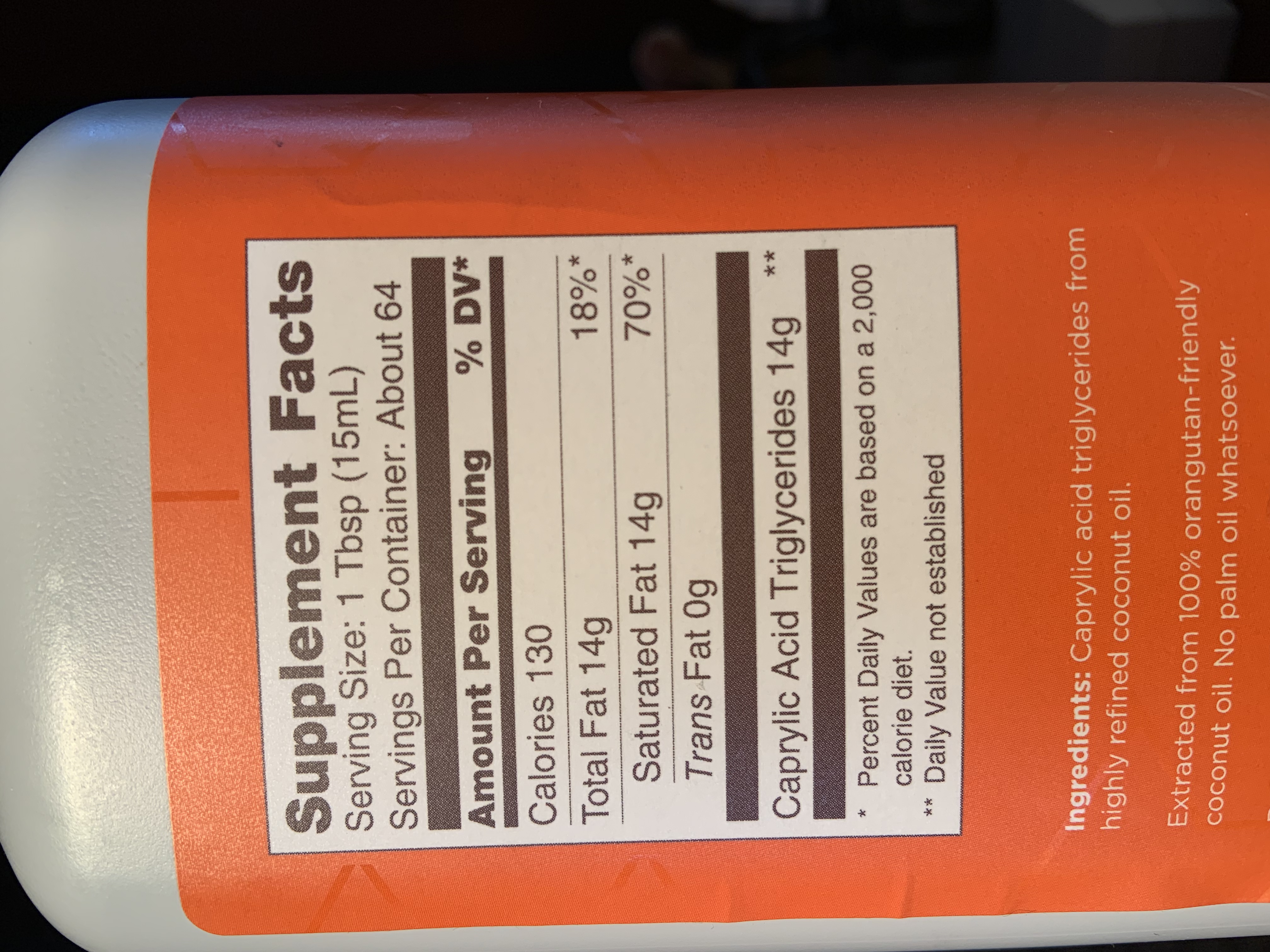MCT Oil
MCT oil provides fuel to your brain and to your body.
Fatigue is significant in patients with chronic Lyme disease, chronic infections, biotoxin illness, autoimmune disease, chronic fatigue syndrome, fibromyalgia, and many other conditions. Many patients experience brain fog as well.
Dietary medium-chain triglycerides (MCTs) from coconut in the form of MCT oil can contribute to overcoming fatigue. These fats are absorbed directly from the gastrointestinal tract into the blood stream to travel where energy is needed the most. MCT oil is often used in ketogenic diets.
Coconut consists mostly of three types of MCTs: some caprylic acid (8 carbons - smaller), some capric acid (10 carbons), and lots of lauric acid (12 carbons - larger). You would want to choose a brand of MCT oil that contains mostly/all caprylic acid and no lauric acid for best absorption and utilization for this purpose.

However, some MCT oils have tricky and even deceptive labeling. For example, the label (left) shows that it contains 7.7 g caprylic acid and 5 g capric acid which is 12.7 g MCTs. So, it looks perfect. But wait! The label says that the total MCTs is 14 g. So, what is the other 1.3 g? The company replied to an inquiry about this matter and said that the remaining 1.3 g is lauric acid and caproic acid!

This other label (right) says that their MCT oil contains caprylic acid and capric acid which is good. But does it also contain lauric acid? Probably. The consumer cannot tell from the label which means that it is not highest quality MCT oil.
Now, check out this orange label (below) from Bulletproof Brain Octane MCT oil. (Not sure why the photo is turned because it was taken in an upright position! Sorry!) You can plainly see that the 14 g total fat come from 14 g caprylic acid ONLY. This product is a much better fuel for your brain and for your body. Plus, it is orangutan friendly!


Because some people may experience gastrointestinal upset when starting MCT oil, it is best to start with just 1 teaspoon just once per day, and then to wean up to 1 tablespoon one to three times per day. Taking it with food may ease any GI upset.
MCT oil can be taken plain (or with a drop of stevia), or in coffee or tea (but do not add sugar - use stevia if you want a sweetener), or in a smoothie, or as salad dressing. You can be creative!
MCT oil is about 130 calories per tablespoon. Even so, most people find that they are not hungry as much, that they tend to snack less, and that they have more energy so that they do not gain weight. Instead, weight loss actually occurs more readily.
You can still use coconut oil
in daily cooking and omega 3 products (which are large chain
triglycerides) in daily supplementation.
Enjoy your MCT oil and your extra energy!
Let food
be thy medicine,
and medicine
be thy food.
~Hippocrates
DANDELION
Your word
is a lamp
to my feet
and a light
to my path.
~Psalm 119:105
ECHINACEA
The secret of health
for both mind and body
is not to mourn for the past,
worry about the future,
or anticipate troubles,
but to live in the present moment wisely and earnestly.
~Buddha (paraphrased)
LAVENDER


